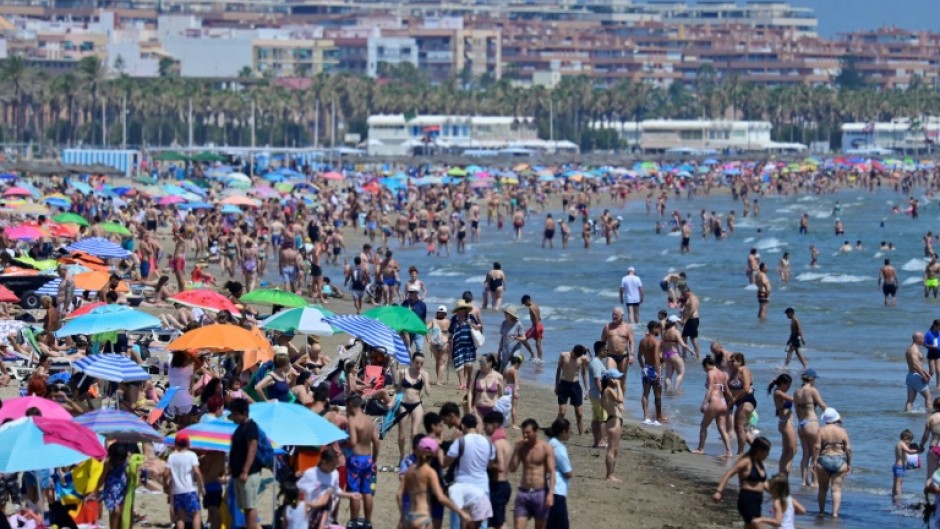A record 94 million foreign tourists craving sun, sand and culture flocked to Spain in 2024 as the sector drives the country's bullish economy, the tourism minister said on Wednesday.
Tourism represents around 13 percent of the economy in the world's second most-visited country, which has sustained growth rates well above a mostly sluggish eurozone.
But a backlash against the social and economic consequences of mass tourism is growing as Spain faces a persistent housing crisis.
"In 2024, the forecast for international tourists is around 94 million, 10 percent more than 2023. Spain therefore continues to break records," Industry and Tourism Minister Jordi Hereu told a press conference in Madrid.
Spending by foreign tourists last year is estimated at around 126 billion euros ($130 billion), a 16-percent increase on 2023, Hereu added.
Tourism was becoming less dependent on traditional holiday periods, with a growth in international travellers during the low and middle seasons, Hereu's ministry said in a statement.
In a report published last month by the professional association Mesa del Turismo, Britain, France and Germany were the top contributors to foreign visitor numbers.
Along with its southern European neighbours Portugal and Greece, Spain has rebounded from harsh austerity measures and heavy debt in the early 2010s largely thanks to a rebound in tourism following the Covid-19 pandemic.
The Bank of Spain has predicted growth of 3.1 percent in 2024 for the European Union's fourth-largest economy, compared with the European Central Bank's forecast of 0.8 percent for the eurozone.
- Mass tourism backlash -
As elsewhere, the boom has generated a backlash and sparked protests in tourist hotspots including Barcelona, the southern region of Andalusia and the Canary and Balearic Islands.
Locals complain that surging visitor numbers are changing the fabric of their neighbourhoods.
Barcelona and the popular southern coastal city of Malaga have announced measures to clamp down on short-term tourist rentals in a bid to tame popular discontent at rampant housing prices.
A tax hike and tighter regulation for tourist apartments were among 12 measures announced by Socialist Prime Minister Pedro Sanchez this week aimed at easing the housing crisis.
He also announced a tax of up to 100 percent on the purchase of properties by non-EU nationals who live outside Spain.
"It is not fair that those who own three, four, five apartments for short-term rental pay less tax than hotels," Sanchez said, acknowledging that Spain had "too many Airbnbs and not enough homes" for residents.

